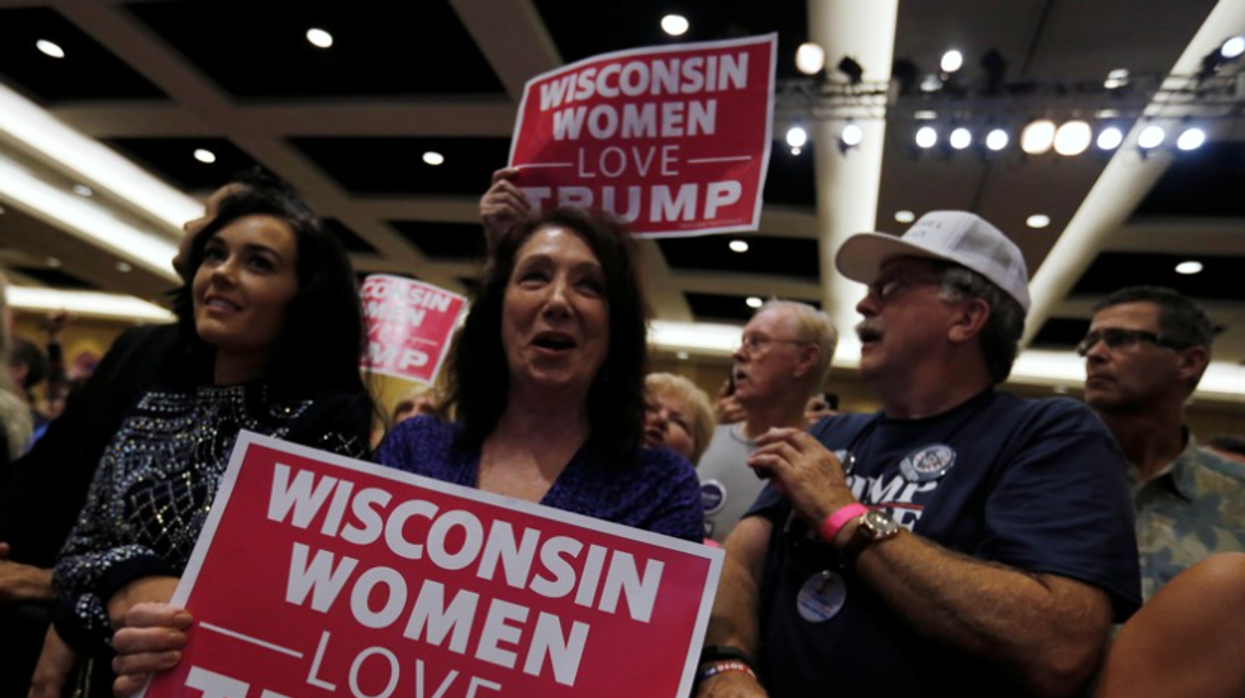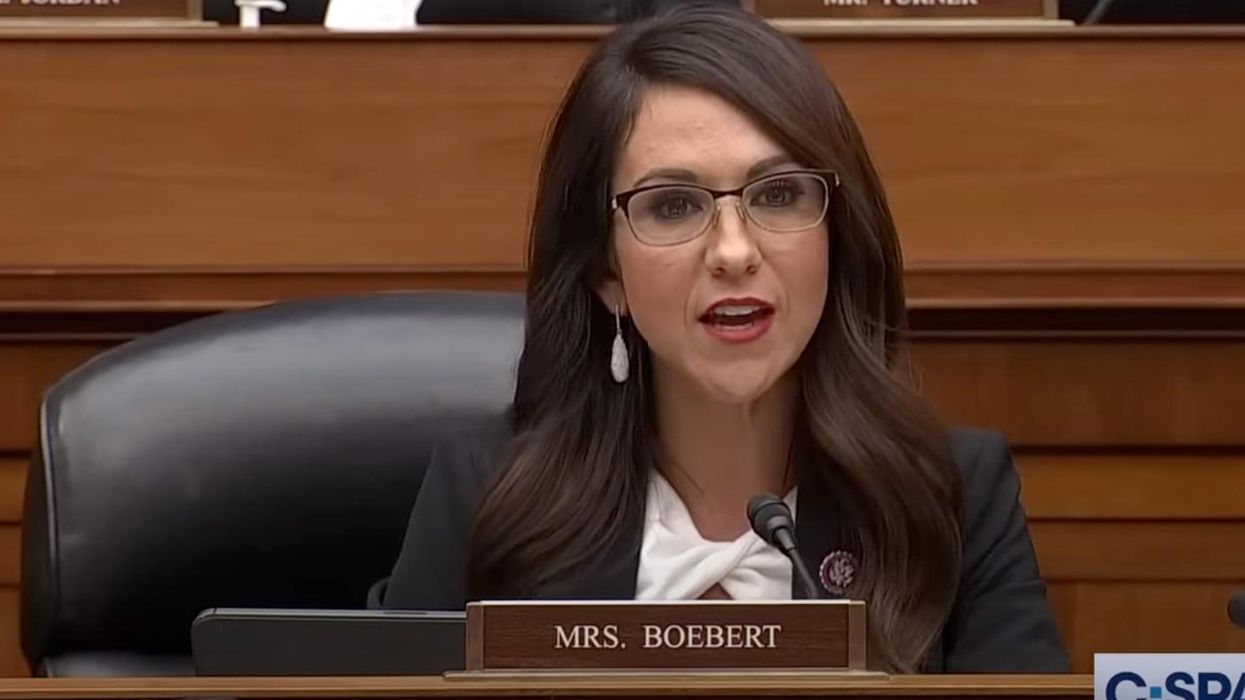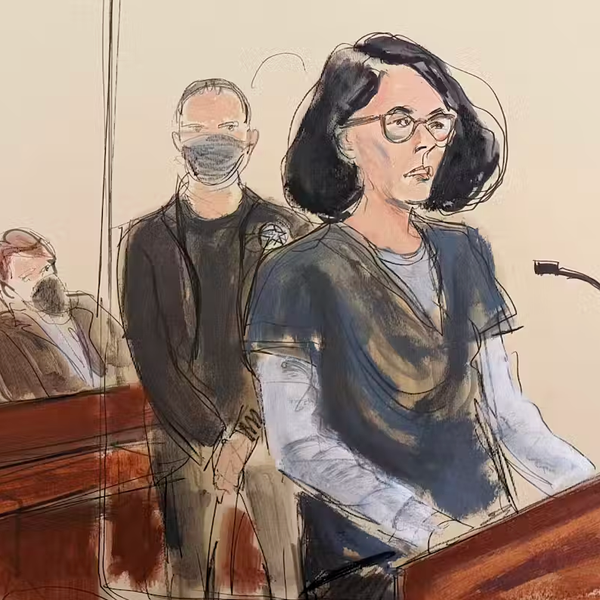In their new book, White Rural Rage: The Threat to American Democracy, Tom Schaller and Paul Waldman argue that rural white citizens pose an existential, four-fold threat to U.S.democracy. According to their research, rural whites tend to harbor racist, anti-gay, and anti-immigrant views; are unusually conspiracist-minded, as evident in their support for election denialism, anti-science and anti-vaccine COVID beliefs, and Qanon conspiracies; express undemocratic views about presidential power, free speech, white nationalism, and Christian nationalism; and, are most inclined to justify if not call for political violence. None of that would matter so much if not for the longstanding mathematical inflation of that cohort's voting power.
No group was ever dealt a better electoral hand than rural white Americans. The inflated power of rural white voters confers upon them an unusual ability to force state and national governments to cater to their preferences and grievances. Herein lies the danger: Precisely because they wield inflated power, rural whites’ increasingly tenuous commitments to democratic norms and traditions are magnified across the U.S. political system in many of the same ways their preferences have been for two centuries.
The malapportioned Senate assigns more power to smaller, more rural states, and this small-state tilt of malapportionment is greater now than when the U.S. Constitution was ratified. Size and rurality are not identical. Nevada is one of the least rural states, featuring a small statewide populace, two-thirds of whom are packed into the Las Vegas metropolitan area. By contrast, North Carolina has the ninth-largest population, yet it ranks among the most rural states. And the Senate does not merely favor rural residents generally: It specifically assigns greater voting weight to rural whites, especially rural whites without college degrees, who are overconcentrated in smaller, more rural states.
Mathematical Advantage
Given how rural whites without college degrees vote, the rural skew of the malapportioned Senate favors the Republican Party. Following the 2020 election, among the eighteen states with rural populations at or above 30 percent, the three in New England—Maine, New Hampshire, and Vermont—boasted a mix of U.S. senators, with one Republican, three Democrats, and two independents who caucus with the Democrats. But these are partisan exceptions. In the remaining fifteen states, from Alaska through West Virginia, twenty-eight of the thirty senators were Republicans.
Republicans have not always enjoyed an advantage among smaller, more rural states. When he examined this question in 2022, political scientist Lee Drutman of the think tank New America found no connection between state population size and partisanship during the first four decades of the twentieth century. Since 1940, however, the smaller states have steadily become more Republican. According to Drutman, at no time since 1950 has the Senate Republican caucus represented states containing the majority of Americans. Yet Senate Republicans wielded majorities for six years each in the 1980s and ’90s, four years during the 2000s, and six more years in the 2010s.
When political scientists Richard Johnson and Lisa Miller in 2022 examined 804 key Senate votes between 1961 and 2019, they found that the outcomes clearly favored conservatives, Republicans, and rural whites in particular. The reason, of course, is that small states have always had much higher shares of white and rural residents than the national average, favoring them in the Senate at the expense of racial minorities.
The Republican Party and its rural white voter base also enjoy a pivotal advantage in presidential elections, which are decided by the Electoral College rather than by a national popular vote as is used in every other democracy in the world. Thanks to the inflated power that smaller states enjoy in the Electoral College, the past two Republican presidents entered the White House despite having lost the popular vote. It’s not just possible but likely that yet another Republican in the near future will win the White House despite receiving fewer votes than their opponent.
We can see how this plays out in practice by comparing the 2016 and 2020 election results. In 2020, Democrat Joe Biden amassed 306 electoral votes, 36 more than the 270 minimum needed to win, while winning the national popular vote by 4.4 percent. Four years earlier, despite losing the popular vote to Democrat Hillary Clinton by 2.1 percent, Republican Donald Trump also captured the same total of 306 electors. That’s a net difference of 6.5 percent in the popular vote margins of consecutive winners, yet Trump and Biden won the exact same number of electors—a stunning indictment of how the Electoral College translates votes into victories.
In recent presidential contests, small states Delaware, Hawai’i, Maine, Rhode Island, and Vermont have cast their 18 electors reliably for Democratic nominees. But the reliably Republican small states—Alaska, Arkansas, Idaho, Kansas, Mississippi, Montana, Nebraska, North Dakota, Oklahoma, South Dakota, West Virginia, and Wyoming—cast a combined 48 electors, more than twice as many. The GOP’s advantage in rural states is indisputable: In 2020, Donald Trump won 98 of the 108 combined electoral votes cast by the eighteen most rural states.
Defenders of the Electoral College offer no apologies for its rural, small-state tilt. To them, this bias is a feature, not a bug. In fact, too often defenders of the Electoral College justify its anti-democratic nature by, directly or indirectly, implying that the votes of rural voters should count more because those voters are somehow better than the rest of us.
Mythological Advantage
The increasing geographic polarization between the parties has become a regular topic for national news outlets, yet stories about Republicans’ inability to win in cities are far rarer than stories about Democratic struggles among rural voters. There’s an implicit judgment at work, one that says that Democrats’ failure to win over rural voters is a kind of moral failing, one that can only be bred of insensitivity or contempt. Republicans’ struggles in cities, however, are seldom examined and less often judged; it’s just how things are.
This double standard is reinforced by the fact that journalists are always ready to amplify those few cases in which a Democrat says something dismissive about rural areas and the people who live there. But try to imagine a Democratic state legislator saying that the rural areas where 20 percent of his state’s population lives are a “hellhole” and sponsoring a bill calling for those areas to be spun off into their own state so the rest of the state can be rid of them. Now imagine the Democratic Party making that legislator their nominee for governor.
That’s what happened in 2022 in Illinois, but with the parties reversed: Republicans nominated state senator Darren Bailey, who had repeatedly called Chicago a “hellhole” and who introduced a resolution to make it its own state. Bailey’s view of big cities is shared by many conservatives, even some who live in those cities but who see political advantage in encouraging people to fear them. And few people have fed conservative contempt, and myths, about cities more than native New Yorker Donald Trump.
“We have a situation where we have our inner cities, African-Americans, Hispanics are living in hell because it’s so dangerous,” Trump said in a 2016 debate with Hillary Clinton, at a time when crime was the lowest it had been in decades. “You walk down the street, you get shot.” This was a regular theme of Trump’s over the course of his presidency; he would paint a picture that seemed frozen in the 1970s New York of Charles Bronson’s movie Death Wish, in which vicious gangs roving grimy streets terrorized a (white) middle class, a problem Trump said could be solved only with brutal crackdowns.
Denigrating cities and the people who live in them doesn’t come just from Trump. The supposed depravity and danger of American cities is hammered home again and again on conservative media, frequently with the implication that the more Black people a city contains, the more dangerous that city must be.
Crime continues to be portrayed as an almost exclusively urban phenomenon. When crime rates spiked during the Covid-19 pandemic in 2020, it led to a wave of media coverage that, in both mainstream and conservative media, focused on cities such as San Francisco and Chicago, both supposed to be bastions of liberal values and nightmares of crime. What wasn’t a topic of extended discussion in the media was that fact that at the same time, there was a dramatic crime increase in rural areas, where violent crimes rose 25 percent in 2020.
This narrative of the dangerous (blue) city and the safe (red) rural area has been a staple of conservative rhetoric for so long that it encourages Republican politicians to ignore or dismiss the violence suffered by their own constituents, as Oklahoma’s governor Kevin Stitt proved during his 2022 re-election bid. In a remarkable moment during a televised debate, Stitt literally scoffed when his opponent, Democratic nominee Joy Hofmeister, pointed out that the Sooner State’s violent crime rate is higher than New York’s or California’s. Stitt peered out at the in-person audience, laughed, and said with a huge grin, as if he couldn’t believe his opponent was so dumb, “Oklahomans, do you believe we have higher crime than New York or California? That’s what she just said!” But Hofmeister was right: According to the CDC, the homicide rate in Oklahoma at the time was 9 per 100,000 people, while in California, it was 6.1, and in New York, it was 4.7. And Oklahoma’s violent crime rate has been higher than either New York or California for two decades.
Contrast those statements with Barack Obama’s memorable 2008 comment about people in small towns clinging to guns and religion. What really matters about that incident is how right Obama was. In fact, he offered an insightful analysis of how the events of recent decades had altered the nature of political identity among whites in rural areas and small towns, saying that in small towns, jobs have disappeared “and each successive administration has said that somehow these communities are gonna regenerate and they have not. And it’s not surprising then they get bitter, they cling to guns or religion or antipathy to people who aren’t like them or anti-immigrant sentiment or anti-trade sentiment as a way to explain their frustrations.”
The resignation Obama was describing is an enormous gift to Republicans, who even as they win elections, remain the targets of well-earned suspicion from poor and working-class voters around the country (not just in rural areas) over whether they have those voters’ economic interests at heart. If Republicans don’t need to convince those voters that conservative economics works for them, but can merely say that Democrats are indifferent to their plight, the GOP’s work is almost complete.
Excerpted with permission from White Rural Rage: The Threat To American Democracy (Penguin RandomHouse 2024).
Tom Schaller is a professor of political science at the University of Maryland, Baltimore County. A former columnist for The Baltimore Sun, he is the author or co-author of four other books, including Common Enemies, The Stronghold, and Whistling Past Dixie. Paul Waldman is a former columnist at The Washington Post and the author or co-author of four previous books on media and politics, including Being Right Is Not Enough: What Progressives Must Learn from Conservative Success and The Press Effect: Politicians, Journalists, and the Stories that Shape the Political World.












